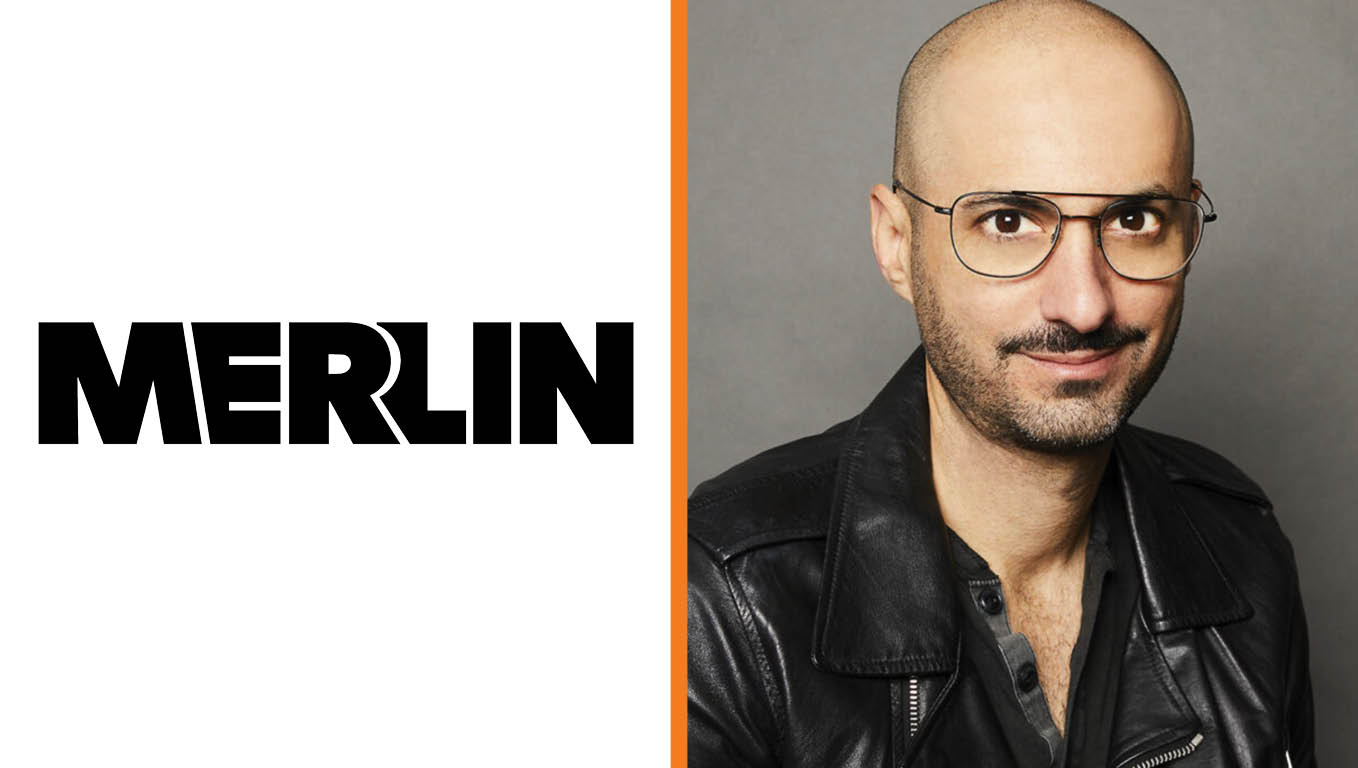Merlin’s Stance on AI Training
Merlin, the global licensing body for independent labels and publishers, issued a blanket statement saying that its members’ music cannot be used to train AI without “explicit written permission.”
“It is the position of Merlin and its members that any use of Merlin members’ repertoire for the training, development or implementation of artificial intelligence models and related purposes requires express written permission from Merlin or the relevant Merlin member,” Merlin said in the release. The statement was released on Monday (December 16).
Largest music companies Sony Music Group and Warner Music Group published similar letters earlier this year.
The letters from Sony and Warner were a response to the end of the European Union Artificial Intelligence Laws, sweeping legislation to regulate the development and use of AI. The law includes an “opt-out” clause that requires copyright holders to state that they refuse to have their content used for AI training.
In May, Sony sent a letter to about 700 artificial intelligence developers and music streaming services, noting that the music company has “reason to believe that you and/or your affiliates may have already made unauthorized use” of Sony intellectual property in training artificial intelligence.
Warner’s letter, published in July, stated that “all parties must obtain an express license from WMG to use… any creative works owned or controlled by WMG, and to link to or use such creative works in connection with the creation of data sets as input data for any machine learning or artificial intelligence technologies, as well as for training or development of any machine learning or artificial intelligence technologies (including using automated means).”
Concerns Over Copyright and AI
However, Merlin’s letter focused less on EU law and more on legal disputes in the US over whether using copyrighted music and other content to teach AI constitutes “fair use” – a common defense used by artificial intelligence companies that have been sued by copyright owners.
Suno and Udio, two generative AI music-making apps sued by major record labels this year, have made “fair use” a centerpiece of their defense. They admit they likely used copyrighted music to train their AI, but claim they had the right to do so.
“The legal test for fair use includes four criteria related to the purpose and nature of the use, the nature of the copyrighted work, the scope used, and the impact on the market or value of the copyrighted work,” Merlin said in its statement. “Unlicensed commercial AI models fail on all four fronts.”
“Any use of Merlin members’ repertoire for the training, development or implementation of artificial intelligence models and related purposes requires express written permission from Merlin or the relevant Merlin member.”
Merlin
Merlin argues that any extraction of copyrighted music for AI training involves first copying that work, and that “those copies are invariably used for commercial purposes.”
The organization further argues that generative AI trained on copyrighted music “pose(s) a significant threat to the copyrighted sound recordings of Merlin artists, posing direct competition to digital music files.”
And while newly created AI tracks can be “transformative… even transformative use must consider the impact on the original works and the extent to which they replace the original,” Merlin said.
“Merlin recognizes the enormous power of artificial intelligence and its benefits for the creative community and society as a whole; but if AI remains unregulated, the impact on the creative industries and, by extension, global culture will be devastating.”
Merlin and its members are “willing to partner with artificial intelligence companies that want to be on the right side of history—those willing to properly compensate Merlin members for the use of their repertoire and include appropriate protections to protect the rights of Merlin members,” the statement continued.
One of the challenges in enforcing copyright law on AI models is what is often called the “black box” of AI training: developers often do not disclose what was included in the vast data sets obtained to train their AI algorithms.
To address this issue, members of Congress have introduced several bills to require greater transparency in AI educational materials.
Senator Peter Welch, Democrat from Vermont, introduced the last of these bills in the Senate last month. Transparency and Accountability of AI Networks (TRAIN) Act will provide copyright holders with the ability to request an administrative subpoena in a US federal court that would require an AI developer to disclose its training materials, provided that the copyright holder has a “good faith belief” that its intellectual property was used to train that AI model.
A separate bill Law to Protect the Origin and Integrity of Content from Edited and Deeply Fake Media (COPYED Act) was introduced in the Senate earlier this year. This would make it illegal for many organizations and companies in the music industry to use copyrighted works to train AI without permission.
The full text of the letter outlining Merlin’s Position on AI can be read below.
Merlin’s position on AI
Merlin is a digital licensing partner for independent companies. Merlin’s primary function is to provide innovative and properly paid use of its members’ music. This is clearly demonstrated by Merlin’s partnerships with many of the world’s leading digital services.
All of our partnerships have one thing in common: our partners value music. While our partnerships have evolved over the years, they respect the human artistry involved in creating music and the financial investment required to nurture, distribute and market it. The rapid evolution of artificial intelligence (AI) changes nothing.
Merlin and its members have always accepted and adapted to technological change while ensuring that the value of human creativity is respected. Artistic expression is a fundamental part of what makes us human. The ability to create, appreciate and enjoy art in all its forms lies at the core of the human experience. Music, in particular, brings people together, evokes emotions and helps us express thoughts and feelings.
Merlin recognizes the enormous power of artificial intelligence and its benefits for the creative community and society as a whole; but if AI remains unregulated, the impact on the creative industries and, by extension, global culture will be devastating.
Merlin believes that when developed and implemented responsibly, artificial intelligence technologies can be an addition to the creative landscape. Artificial intelligence products that enhance human creativity or provide new opportunities for artists to create and collaborate on new original works are products supported by Merlin. Merlin and its members are willing to partner with artificial intelligence companies that want to be on the right side of history—those who are willing to properly compensate Merlin members for the use of their repertoire and include appropriate protections to protect the rights of Merlin members.
However, Merlin cannot, without permission, endorse any product, regardless of purpose, based on the music of Merlin members.
Merlin members and the independent labels they represent number in the thousands. These are not multinational corporations. These are often small businesses that support the artists who shape contemporary culture around the world and try to make a living in increasingly challenging circumstances. Unlicensed use of the work of these artists poses a real and immediate threat to the livelihoods of the artists and those who support them.
It has been suggested that training AI models on artists’ work without permission should somehow be considered “fair use.” We believe that this is the exact opposite of fairness, both morally and legally.
The legal test for fair use includes four criteria related to the purpose and nature of the use, the nature of the copyrighted work, the amount used, and the effect on the market or value of the copyrighted work. Unlicensed commercial AI models fail on all four fronts. Any artificial intelligence company that trains its models by scouring the Internet for copyrighted sound recordings is making an unauthorized reproduction of entire copyrighted works. These copies are invariably used for commercial purposes, and AI-generated and model-derived audio recordings pose a major threat to the market for copyrighted Merlin artist recordings as they pose direct competition to digital music files. There is much talk about how such uses are fair simply because the results are “transformative,” but even transformative uses must consider the impact on the original works and the extent to which they displace the original. In the case of music generated by artificial intelligence, the substitution effect is obvious.
Using someone else’s creative work—without permission, without compensation, and for the express purpose of using that work to create new works that replace the original—is not inherently fair use.
In seeking to license their music, Merlin members and their artists do not use their copyrights to gain an unfair advantage. They do whatever it takes to earn a living and protect the rights to their expressive works. We expect this to be no different than how we believe artificial intelligence companies and their investors will turn to copyright and other intellectual property laws to protect against any unauthorized use of their technology. AI companies are rightly protective of their models and proprietary software, but some seem to view other people’s intellectual property as “free data” used in their algorithms.
It is the position of Merlin and its members that any use of Merlin members’ repertoire for the training, development or implementation of artificial intelligence models and related purposes requires the express written permission of Merlin or the relevant Merlin member. Merlin’s policies are clearly stated on its website https://merlinnetwork.org/policy-on-ai/.
If you are a responsible AI company looking to use independent music to train a model, or offer a product or service that complements the music ecosystem and brings creative value to music creators, please contact us at ResponsibleAI@merlinnetwork.org.
Merlin tells tech companies not to use its members’ music to train AI without authorization





